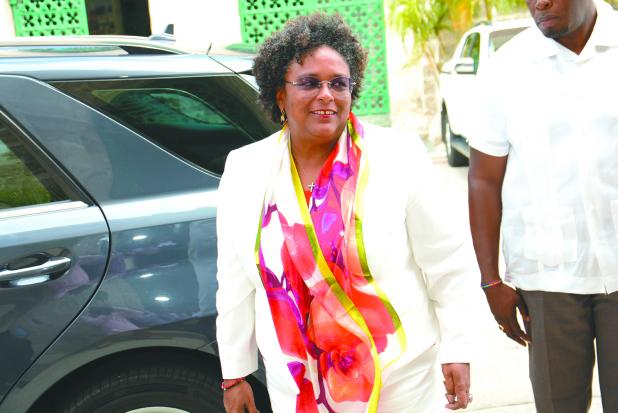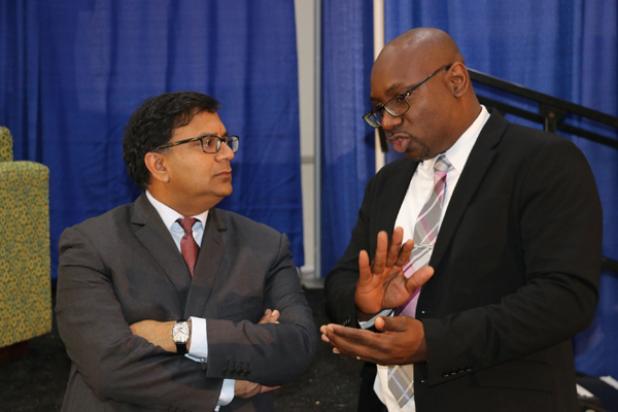INTEREST will shift to the House of Assembly this morning where Prime Minister and Minister of Finance, Economic Affairs and Investment, the Honourable Mia Mottley, will be presenting her first Budget since her Barbados Labour Party formed the Government less than three weeks ago.
Prime Minister Mottley will be outlining measures the new administration intends on pursuing to bring some order to the Barbados economy, which registered a 0.7 per cent decline between January and March this year. Of equal importance could be details about the arrangement her administration plans to pursue with the International Monetary Fund (IMF), which was invited to send a team to the island last week for discussions with the Government. Those discussions dealt with ways the IMF can assist Barbados with its economic stabilisation and recovery.
The Fund’s officials have said that Barbados is facing multiple threats related, among other things, to low international reserves, low economic growth, high fiscal deficit and high debt.
“The Barbadian authorities, in close consultations with their social partners are rapidly developing a plan to address current economic vulnerabilities,” according to a statement by the Bert van Selm,” who headed the IMF team to Barbados.
The Prime Minister is likely to touch on the fiscal consolidation programme which Barbados has in place to curb spending while boosting revenue. However something is expected to be heard about the controversial National Social Responsibility Levy (NSRL) which the IMF said has not gone far enough. The IMF in its Article IV Consultation report had called for a strengthening of the programme. In particular, IMF officials who were here last week want to see more emphasis on the expenditure side of government’s operations, while the Prime Minister has said that the medium-term goal is to have a balanced budget.
It is concerning these, as well as more information on debt restructuring/debt profiling, and an IMF agreement among others which the public will be hoping to hear from the Prime Minister.
At a meeting with the Social Partnership, Mottley said that there is no avoidance in delay when treating with the economic and financial position in which we find ourselves.
She promised following a meeting with the Social Partnership that the initial expenditure and revenue adjustments will be ready to be detailed in the Ministerial Statement to be made within a short period of time. The Estimates of Revenue and Expenditure measures passed earlier in the year by the previous DLP Government put Current Expenditure at $4.5 billion, Revenue of $3.2 billion with a shortfall of $1.3 billion.
On the subject of debt, Mottley said that from June 1, her Government is suspending payments due on debts owed to external commercial creditors.
“Similarly, we will endeavour to make scheduled domestic interest payments. However, domestic creditors will be asked to roll over principal maturities until we reach a restructuring agreement,” she said while noting that Barbados’ has been in unsustainable territory for some time.
She said that while her administration is set on a course, it is not an easy one although it is the right path.
“To get there we need to invest in our people, our education, our health, our safety and our public infrastructure – the roads, the buses, water, sewage systems and garbage collection,” according to her.
She had also said that hope must be matched with real opportunities, opportunities to learn new skills, to find new jobs, to make new investments, to create new art and new music.
“We believe your Government can achieve these things by spending more wisely, in greater openness with the people, not by spending and taxing more,” she added. (JB)










